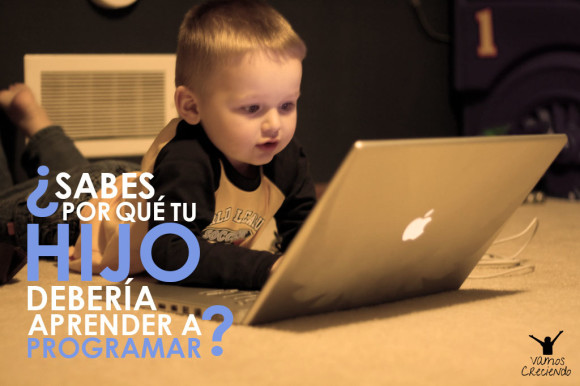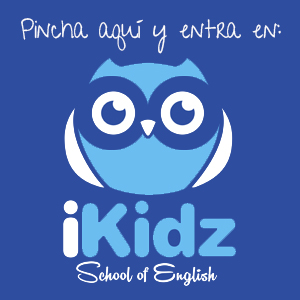Education is an issue that constantly we question. Surely you like me you are thinking if our education system is effective or not, if our children and students learn about, better or worse. We compare ourselves with other countries and propose possible changes.
At Present, one of these "debates" revolves around the possibility of including in the curriculum materials and programming.
¿Programming?? For if. Countries like the United States and Estonia begin to include programming as a subject in their schools, and many educators and computer scientists who defend to the hilt the benefits of introducing this kind of knowledge at an early age.
As you know, defend the teaching of languages at an early age and I think that this is closely related to the ability to learn programming from small. In fact, from my point of view, both "materials" are much closer than we think.
My interest in ICT in education, I carried a little research on this topic. Therefore, in this post and in the next week I will analyze from benefits to the programs currently being used to teach programming to children.
Commenting on this topic among friends, one of them told me: "If children now learn English well, a second language, language, mates, cone ... have to learn programming ... poor children is not?".
In a way is right, and I understand his position because I imagine it will be similar to many of you, but, Do not you think that maybe what we should do is update a little bit our educational system? I.e., what can not be is that children who are literally "digital natives", we have ever discussed this concept, have to go through computer classes where they are taught basic concepts at user level.
These children know better than we used a computer, internet access, and even run programs and tools that have possibly not explained to them but they have learned investigating and observing, so my approach is: Should we not give less basic computer and replace it with a deeper understanding? ¡Let users creators children children!
Elizabeth Lawley the Rochester Institute of Technology, argues that video games are a good tool for learning because they offer children the opportunity to control the environment.
For adults this is not important because we control our own means, our house, work, but children do not. So when they feel in control of that which you are learning, learning is more meaningful.
This also happens with programming. The program offers children the opportunity to customize the middle. The real world is limited, while games and even the opportunity to be you the creator of these games itself is unlimited. This offers them able to learn.
More and more programs that support the idea of integrating this type of learning in schools.
A clear example of this type of program is Code.org, supported Bill Gates y Mark Zuckerberg, inter alia. They argue that learning to program from small offer the opportunity for children to become better programmers in the future.
Obviously they're right, but from my point of view, are many more benefits to cognitive level.
- Ability to customize the middle and, therefore, able to learn.
- Children are creators, nonusers. This develops their creativity, encourages their autonomy and decision making.
- Develop abstract thinking, because they must be able to build something from small pieces.
- Ability to analyze. Locating errors and decomposing. As should be able to build from small pieces, will be able to perform the reverse action.
- Further, programming can arouse interest in other subjects such as mathematics and geometry.
On this topic, You can see the article published J. Paul Gibson, called Teaching Graph Algorithms To Children Of All Ages.
In this, Gibson talks about the experience of teaching graph theory and algorithms to children between 5 and 17 years old. His goal was basically to show that children can discover and learn mathematical concepts complexes, and are able to work with abstract concepts related to computer from an early age.
Gibson began to teach programming to students 18 and 19 years old, It was then that he realized that they had a hard time acquiring certain concepts which he had acquired 12.
That led him to reduce the age, lecturing to children 8-9 years old. The response of these was much more positive than older students. It was then that he began to consider what the ideal age to start programming would. When he saw students 5 and 6 years acquired concepts much easier and faster than all previous, was raised that it could be possible to learn to program even before you start reading.
His final conclusion was that children between 5 and 11 years old, have a great capacity for learning algorithms and computing, although many people believe that such young children lack the ability to learn such knowledge. What do you think you?
I personally, I think the same neural mechanisms by which children are "sponges" in language learning, make them highly receptive to programming languages.
We talked at the time, the right age to start learning a second language, Therefore what you think the EU on this topic, as they say studies from universities around the world and as you will see the findings regarding age are very similar. In both cases, it is considered that the 11 years is beginning to be a barrier to learning.
To finish, I think it is important that puntualicemos on a theme. When referring to program at this age, not to say that children are to learn complicated languages. Reference is made to develop multidisciplinary skills, with small programs to solve problems, create simple games, etc. Further, if we want these tools are attractive to children, should, at least, meet two requirements:
- Have a "friendly" environment.
- Dispose of motivational factors. This means that when we teach programming, We should not pretend that these children are to be professional programmers. It means that we must give them the basics and motivate them to themselves to build up their own knowledge.
CONCLUSION.
We should not be radical in education concerns.
There is no doubt that children are children and we let them play, move, experience. Learning to program still does not mean clutter up the curriculum. It means adapting to the times and, above all, children.
"The keyboard is the best social leveler"
Nicholas Negroponte



 Español
Español English
English Français
Français Deutsch
Deutsch 中文(简体)
中文(简体) Português
Português

Nothing better to develop the capabilities and intelligence of people to the maximum from the beginning of their life!
Exactly Victor!
We are not aware of the capacity of children in the first years of life.
A greeting,
Cristina